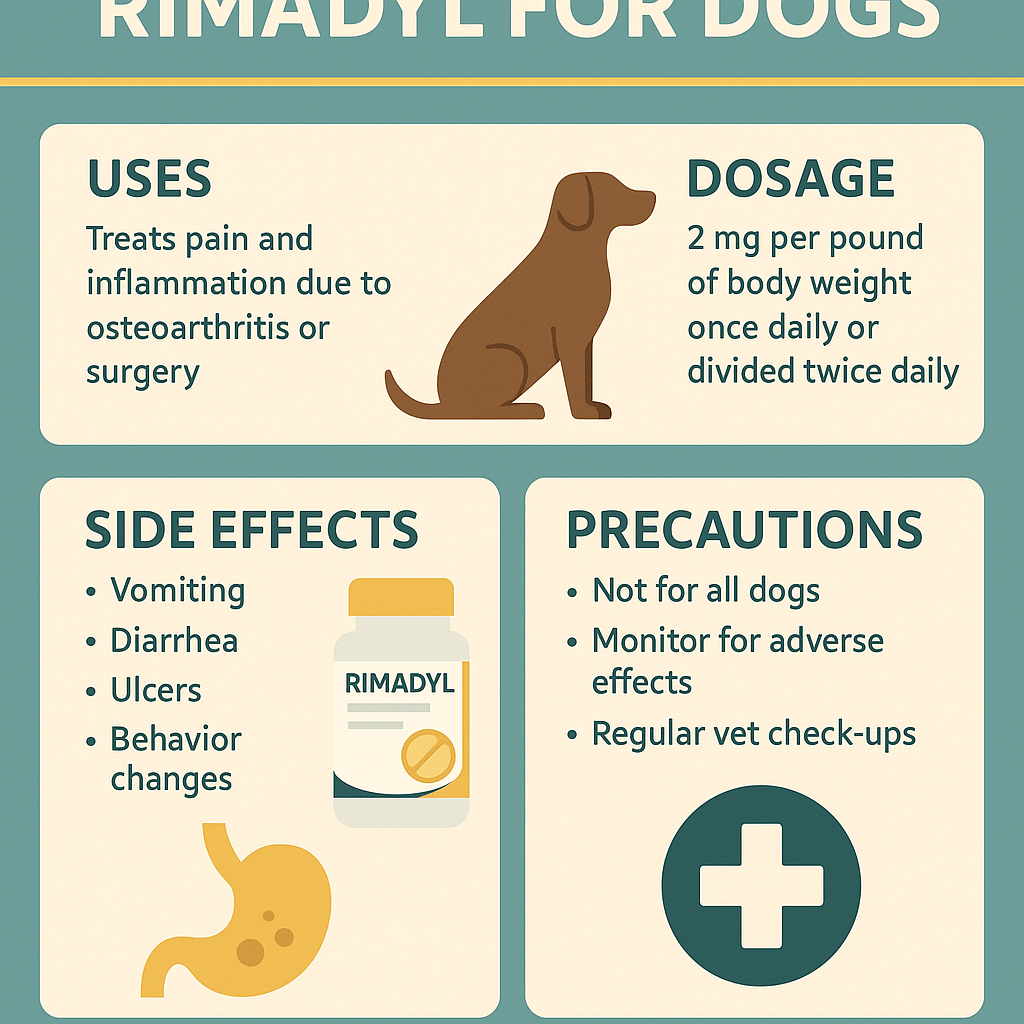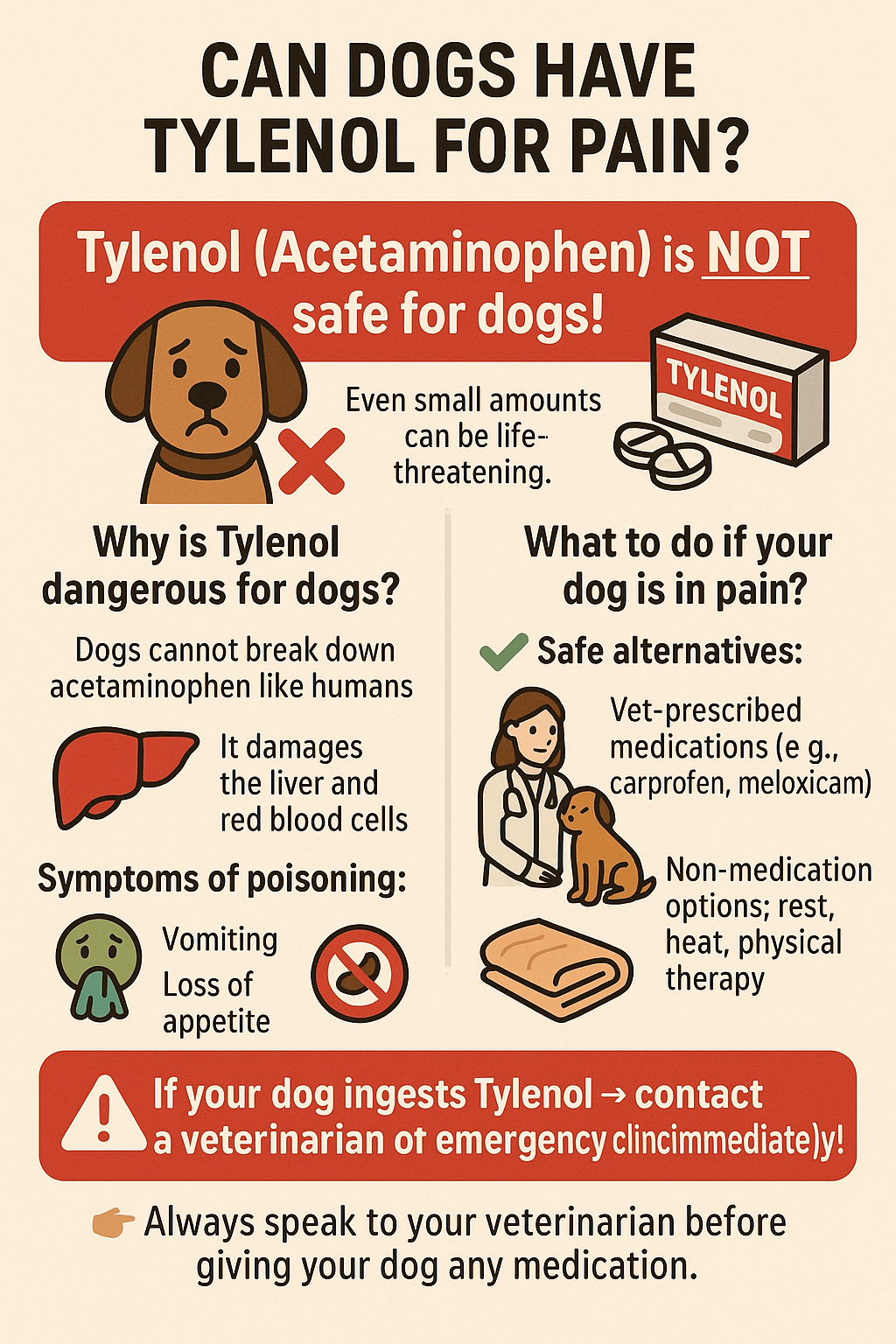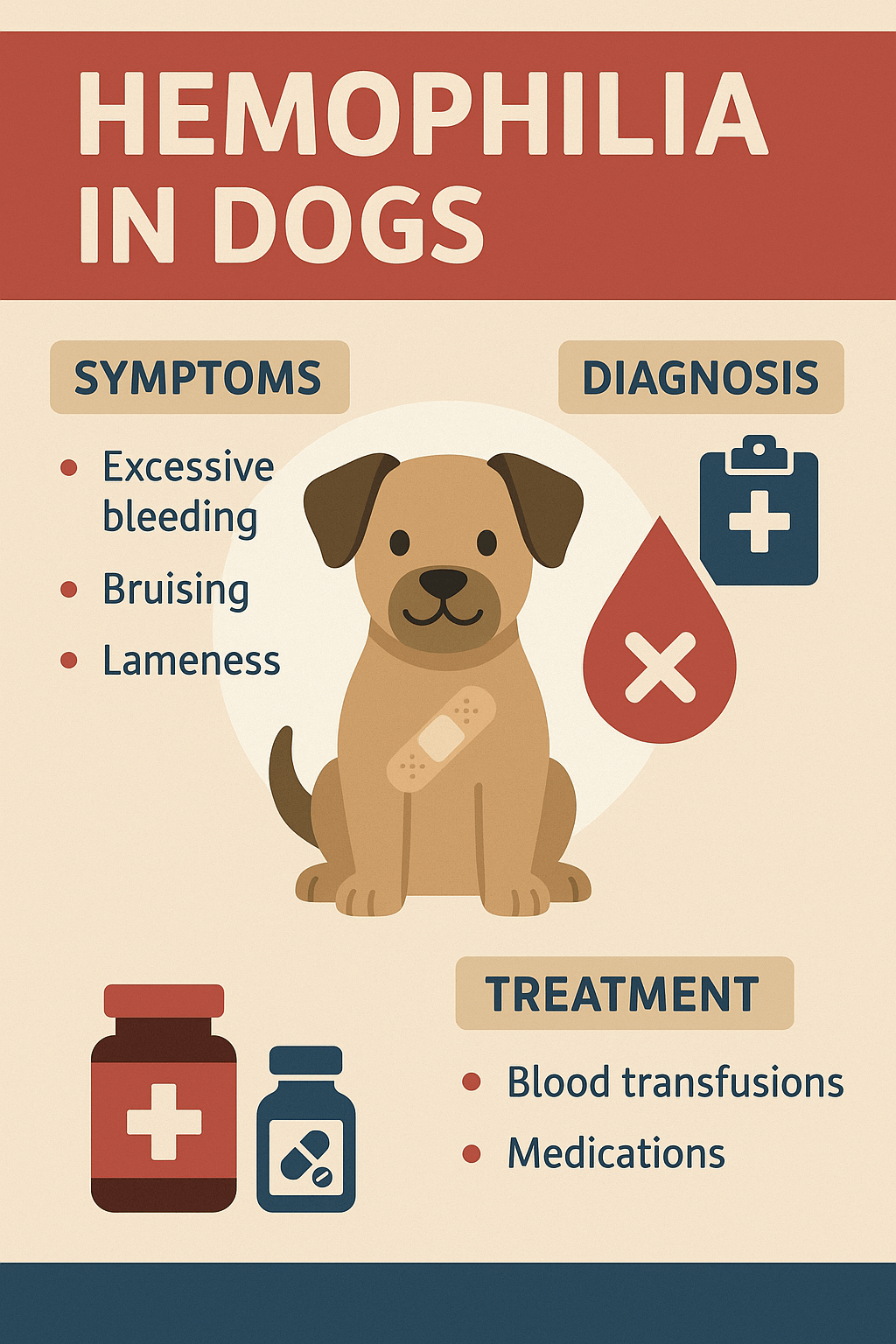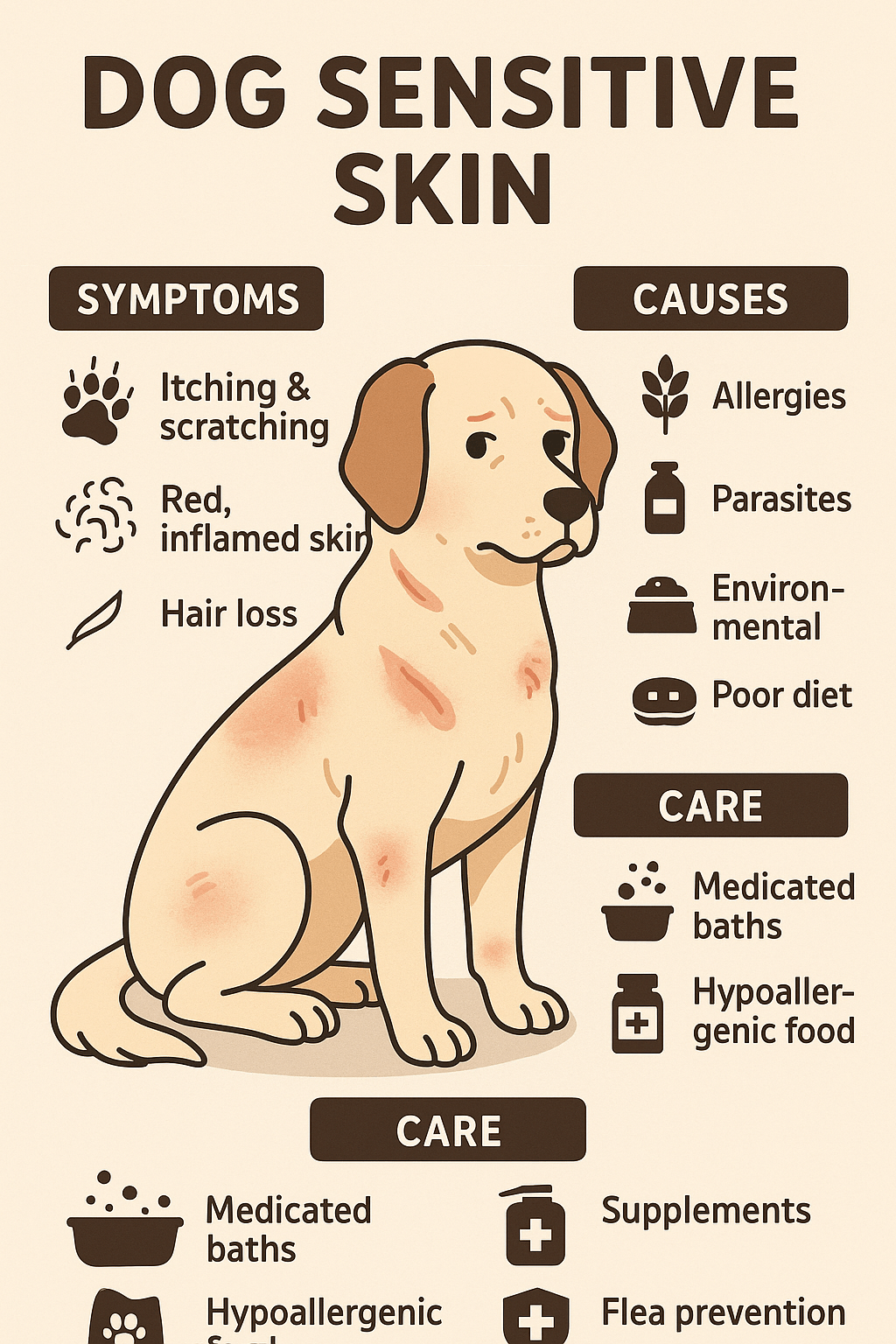Understanding Jealousy in Dogs
Dogs are known for their loyalty, affection, and unconditional love, but they can also experience emotions like jealousy. While this behavior might seem surprising, it’s a natural response rooted in their pack mentality and desire for attention. Whether it’s directed toward another pet, a new family member, or even an object, jealousy in dogs can manifest in various ways, from subtle signs to more overt actions. Understanding the causes and triggers of jealousy is key to addressing it effectively and maintaining harmony in your household. In this blog post, we’ll explore why dogs feel jealous, how to recognize the signs, and what you can do to help your furry friend feel secure and loved.
Signs That Your Dog Is Feeling Jealous
Jealousy in dogs often manifests through changes in behavior or body language. Recognizing these signs early can help you address the issue before it escalates.
Pushing for Attention:
Your dog may nudge you, bark, or jump on you when you’re interacting with someone or something else, trying to redirect your focus back to them.Growling or Snapping:
Some dogs express jealousy by growling or snapping at the perceived “rival,” whether it’s another pet, a guest, or even a toy.Resource Guarding:
A jealous dog might guard their food, toys, or favorite spots more aggressively than usual, viewing others as competition.Sulking or Withdrawal:
Instead of acting out, some dogs retreat and sulk, showing signs of sadness or disinterest when they feel neglected.Marking Territory:
Jealous dogs may urinate or chew on items to assert dominance or mark their territory in response to feelings of insecurity.
By observing these behaviors, you can identify when your dog is feeling jealous and take steps to reassure them of their place in your life.
Common Triggers of Jealousy in Dogs
Understanding what triggers jealousy in dogs is essential for preventing and managing this behavior. These triggers often stem from changes in their environment or routine.
New Family Members:
The arrival of a baby, partner, or roommate can shift attention away from your dog, causing feelings of neglect or rivalry.Other Pets in the Household:
Introducing a new pet or spending more time with an existing one can make your dog feel threatened or less important.Changes in Routine:
Alterations in your daily schedule, such as working longer hours or traveling, can leave your dog feeling abandoned and insecure.Favoritism Toward Objects:
Dogs may become jealous if you spend too much time with objects like phones, laptops, or books, which they perceive as rivals for your attention.Lack of Mental Stimulation:
Boredom or insufficient engagement can lead to frustration, which may manifest as jealousy when attention is given elsewhere.
Identifying these triggers allows you to proactively address potential sources of jealousy and create a more balanced environment for your dog.
Check this guide 👉What Is a Dog Behaviorist? Best 7 Expert Tips!
Check this guide 👉Dog Puberty Behavior: Best 7 Expert Tips!
Check this guide 👉Dog Pack Behavior with Humans: Best 7 Expert Tips!
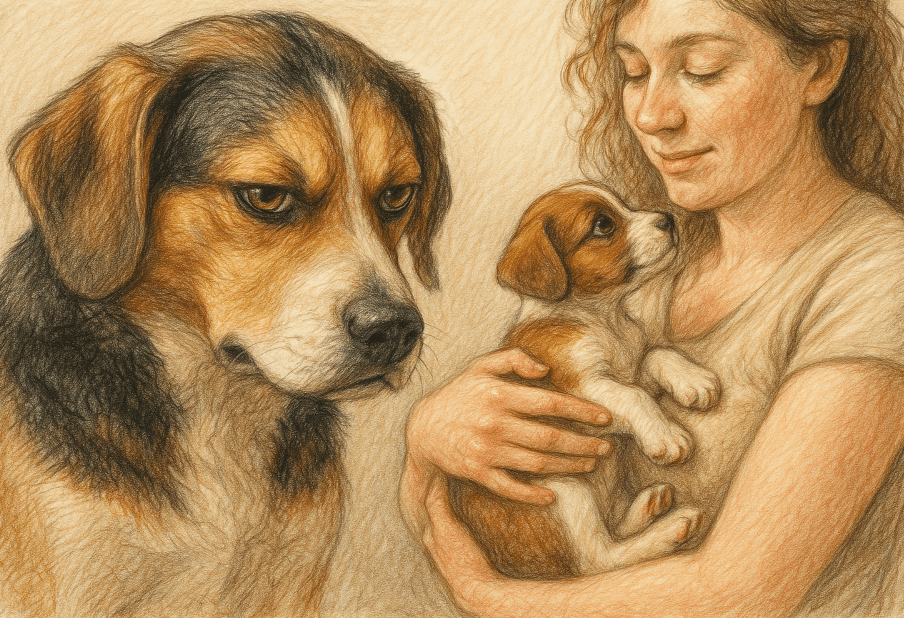
Ways to Prevent Jealousy in Dogs | How to Address Jealous Behavior |
|---|---|
Spend quality one-on-one time with your dog | Redirect attention with positive reinforcement |
Gradually introduce new family members | Avoid punishing jealous outbursts |
Maintain consistent routines and schedules | Train commands like “wait” or “settle” |
Provide plenty of toys and mental stimulation | Reward calm behavior around rivals |
Ensure equal attention among pets | Consult a trainer for persistent issues |
How to Reassure Your Jealous Dog
Reassuring your dog when they feel jealous is crucial for rebuilding trust and reducing their anxiety. Here are some effective strategies to help them feel secure again.
Offer Extra Affection:
Spend dedicated time playing, cuddling, or grooming your dog to remind them they’re loved and valued.Use Positive Reinforcement:
Reward your dog with treats or praise when they display calm and non-jealous behavior, reinforcing positive actions.Create Boundaries:
Establish clear rules about acceptable behavior, such as not allowing them to interrupt interactions with others.Engage in Group Activities:
Include your dog in activities involving other people or pets to help them feel included rather than excluded.Provide Comfort Items:
Blankets, toys, or scents that carry your smell can comfort your dog during times when they feel insecure.
With patience and consistency, these techniques can help your dog overcome feelings of jealousy and regain confidence.
Training Tips to Reduce Jealous Behavior
Training plays a vital role in managing jealousy in dogs. By teaching your dog specific commands and behaviors, you can redirect their focus and promote harmony.
Teach the “Wait” Command:
This command helps your dog learn patience and self-control, reducing impulsive reactions to perceived rivals.Practice Obedience Drills:
Regular training sessions strengthen your bond and reinforce your role as the leader, helping your dog feel more secure.Encourage Sharing:
Use treats and toys to teach your dog that sharing attention or resources doesn’t mean losing out.Desensitize to Triggers:
Gradually expose your dog to situations that trigger jealousy, rewarding calm behavior to build tolerance over time.Reward Independence:
Praise your dog for engaging in solo activities, fostering self-reliance and reducing dependency on constant attention.
Training not only addresses jealousy but also enhances your dog’s overall behavior and well-being.
Preventing Jealousy During Major Life Changes
Life changes, such as moving homes or welcoming a new family member, can trigger jealousy in dogs. Here’s how to minimize its impact.
Introduce Changes Gradually:
Allow your dog to adjust slowly to new environments or people to reduce feelings of displacement.Involve Them in the Process:
Include your dog in activities related to the change, such as letting them sniff new furniture or meeting guests.Maintain Familiar Routines:
Keep feeding, walking, and play schedules consistent to provide stability during uncertain times.Use Calming Products:
Tools like pheromone diffusers or calming treats can ease anxiety during transitions.Seek Professional Guidance:
If major changes overwhelm your dog, consult a veterinarian or trainer for additional support.
Preparing your dog for life changes ensures they remain happy and secure despite disruptions.
The Role of Exercise in Reducing Jealousy
Physical activity is a powerful tool for managing jealousy in dogs by channeling their energy into healthy outlets.
Daily Walks:
Regular walks not only tire your dog physically but also stimulate their mind, reducing stress and boredom.Interactive Playtime:
Games like fetch or tug-of-war engage your dog’s natural instincts and strengthen your bond.Agility Training:
Setting up obstacle courses challenges your dog mentally and physically, boosting their confidence.Socialization Opportunities:
Controlled interactions with other dogs can teach your dog to share attention and enjoy group settings.Mental Puzzles:
Toys and puzzles that dispense treats keep your dog entertained and distracted from feelings of jealousy.
Exercise promotes emotional balance, making it easier to manage jealousy effectively.
Understanding the Emotional Needs of Jealous Dogs
Behind every jealous dog is an emotional need that requires attention and care. Addressing these needs fosters a stronger connection between you and your pet.
Need for Companionship:
Dogs are pack animals who crave companionship and thrive on human interaction.Desire for Validation:
Jealous dogs often seek reassurance that they are still important and loved.Fear of Abandonment:
Changes in routine or attention can trigger fears of being left behind, fueling jealous behavior.Craving Mental Engagement:
Understimulated dogs may act out due to boredom, mistaking jealousy as a way to gain attention.Search for Security:
Consistent routines and clear boundaries help dogs feel safe and reduce feelings of insecurity.
By addressing these emotional needs, you can nurture a happier, more content dog who feels secure in their relationship with you.
Frequently Asked Questions About Jealousy in Dogs
Is jealousy common in dogs?
Yes, many dogs experience jealousy due to their social nature and need for attention.
Can jealousy lead to aggression?
In some cases, unchecked jealousy can escalate into aggressive behavior, making early intervention important.
How do I know if my dog is truly jealous?
Look for behaviors like pushing for attention, growling, sulking, or resource guarding, which indicate feelings of insecurity.
Should I punish my dog for jealous behavior?
No, punishment can worsen the problem. Instead, focus on positive reinforcement and redirection.
Can professional training help with jealousy?
Yes, a professional trainer can provide tailored strategies to address jealousy and improve your dog’s behavior.
Building a Secure and Harmonious Relationship with Your Dog
Jealousy in dogs is a natural emotion that stems from their deep desire for connection and security. By understanding the signs, triggers, and solutions, you can help your furry companion feel confident and cherished. Through consistent training, reassurance, and quality time, you can foster a loving and balanced relationship that benefits both you and your dog. Remember, patience and empathy go a long way in addressing jealousy—your dog looks to you for guidance and support, and with the right approach, you can ensure they always feel like an irreplaceable part of your pack.
Rimadyl for Dogs: Best 7 Expert Tips! Discover expert advice on using Rimadyl safely, managing pain, and improving your dog’s mobility with trusted veterinary insights.
Can Dogs Have Tylenol for Pain? Best 7 Expert Tips! Discover the risks, safe alternatives, and expert advice on managing your dog’s pain effectively while avoiding harmful medications.
Understanding Hemophilia in Dogs: Best 7 Expert Tips! Discover expert advice on managing hemophilia, recognizing symptoms, and ensuring your dog’s well-being with practical care strategies.
Understanding Dog Sensitive Skin: Best 7 Expert Tips! Discover expert advice on managing dog sensitive skin, relieving irritation, and improving your pup’s comfort with practical solutions.

